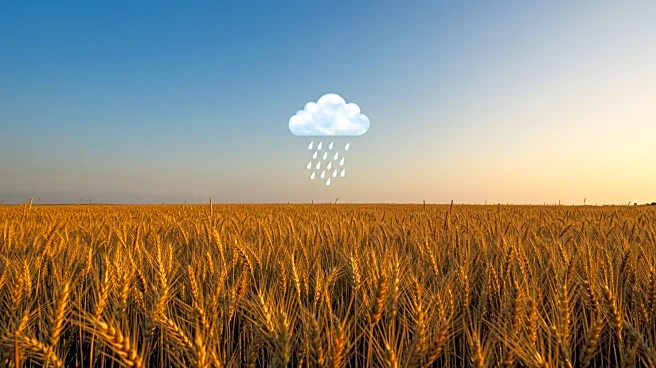What is the story about?
What's Happening?
The governments of Canada and Alberta have implemented measures to assist farmers in Alberta facing challenges due to the drought conditions affecting the 2025 crop year. The Agriculture Financial Services Corporation (AFSC), through the Sustainable Canadian Agricultural Partnership, has increased the low yield allowance. This adjustment allows farmers to salvage crops for livestock feed, aiming to reduce feed-related costs. Many regions in Alberta have experienced prolonged dry and hot weather, leading several municipalities to declare agricultural disasters. The change in low yield allowance means that if the appraised yield falls below the established threshold, AFSC can reduce the appraisal to zero, based on inspections conducted by adjusters.
Why It's Important?
This initiative is crucial for Alberta's agricultural sector, which is significantly impacted by the ongoing drought. By enabling farmers to salvage crops for livestock feed, the government aims to alleviate the financial burden on producers who are struggling with increased feed costs. This support is vital for maintaining the viability of farms and ensuring the stability of the livestock industry in the region. The drought has posed severe challenges, and the government's intervention is a necessary step to mitigate the economic impact on farmers and the broader agricultural community.
What's Next?
Farmers in Alberta will likely continue to face challenges as the drought persists. The government's adjustment to the low yield allowance is a temporary measure, and ongoing support may be required if weather conditions do not improve. Stakeholders, including agricultural organizations and local governments, may advocate for further assistance or policy changes to support farmers in the long term. Monitoring the effectiveness of these measures will be essential to ensure that they provide the intended relief to the agricultural sector.
Beyond the Headlines
The drought in Alberta highlights broader environmental challenges that could affect agricultural practices in the future. As climate change continues to impact weather patterns, farmers may need to adapt to more frequent and severe droughts. This situation underscores the importance of sustainable agricultural practices and the need for policies that support resilience in the farming community. The government's response may set a precedent for how similar situations are handled in the future, emphasizing the need for proactive measures to address climate-related agricultural issues.















